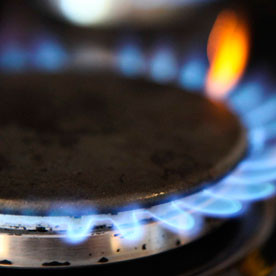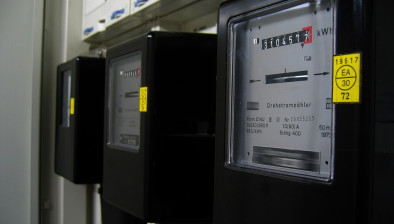Ofgem announces energy price cap is to be updated quarterly

Ofgem has confirmed that the energy price cap will be updated quarterly, rather than every six months, as it warned that customers face a very challenging winter ahead.
The regulator said that the change will go some way to provide the stability needed in the energy market, reducing the risk of further large-scale supplier failures which cause huge disruption and push up costs for consumers. It is not in anyone’s interests for more suppliers to fail and exit the market.
Although the UK only imports a small amount of Russian gas, as a result of Russia’s actions, the volatility in the global energy market experienced last winter has lasted much longer, with much higher prices for both gas and electricity than ever before.
The price cap, as set out in law in 2018, reflects what it costs to supply energy to our homes by setting a maximum suppliers can charge per unit of energy, and caps the level of profits an energy supplier can make to 1.9%, protecting millions of households. As a result of the market conditions, the price cap will have to increase to reflect increased costs and Ofgem will publish the next price cap level at the end of August.
While the price cap will have to rise, it continues to remove the risk of prices rising quickly for consumers when wholesale prices go up but falling slowly and less fully when they go down. When wholesale prices fall, these reductions will be passed on in full to customers through a lower price cap. This will happen more quickly with the quarterly price cap.
Ultimately energy has to be paid for in full and the price cap has to reflect the costs to the supplier of buying it wholesale and supplying it to homes, which makes up most of people’s bills. The price cap is also not a cap on the maximum bill a household can be charged, which is based on their usage.
Today’s changes are being made so that prices reflect gas and electricity costs more quickly and accurately, so they don’t lag behind changes in the market. However, the market remains volatile and so the price cap methodology will be kept under review.
Jonathan Brearley, CEO of Ofgem, said: “I know this situation is deeply worrying for many people. As a result of Russia’s actions, the volatility in the energy markets we experienced last winter has lasted much longer, with much higher prices than ever before. And that means the cost of supplying electricity and gas to homes has increased considerably.
“The trade-offs we need to make on behalf of consumers are extremely difficult and there are simply no easy answers right now. Today’s changes ensure the price cap does its job, making sure customers are only paying the real cost of their energy, but also, that it can adapt to the current volatile market.
“We will keep working closely with the Government, consumer groups and with energy companies on what further support can be provided to help with these higher prices.”
Brian Sloan, chief executive at Age Scotland, said: “Today’s announcement of a quarterly price cap means customers could face another energy price hike on New Year’s Day and plunge hundreds of thousands of older people into poverty. To do this during the coldest time of the year and after a tough autumn of higher prices is a cruel move and will pose a significant health risk to many vulnerable older households across Scotland.
“With the cost of energy and food already spiralling out of control and 1 in 3 older households in Scotland already living in fuel poverty, and many more just on the cusp, we’re urging Ofgem to rethink their decision and for governments to consider how those on the lowest incomes can be protected. We can’t afford to wait for the worst effects to be felt and the devastating impact this decision would have on older people.”
Conor Forbes, director of policy with Advice Direct Scotland, added: “The impact of this change will be watched with interest, but what is beyond doubt is that there are some incredibly challenging months ahead for households.
“Unfortunately, bills are going to soar in October just as winter arrives – and we can expect further rises in January. The key advice to everyone in Scotland is not to struggle alone.
“Our experts at energyadvice.scot are available to provide free advice on the support and assistance available, such as grants, and we can also ensure that Scots are claiming all the benefits they are entitled to by using our free checker tool at www.advice.scot.”





